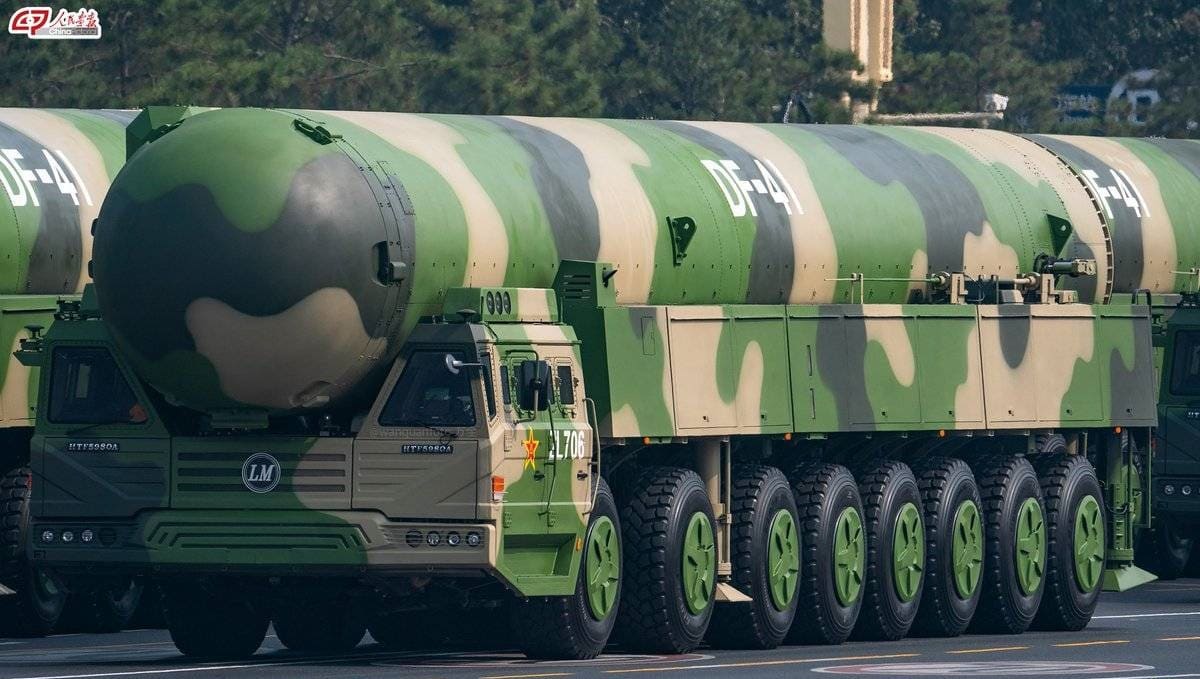What do the prospects for arms control look like after the Russia-Ukraine War? The short answer is “not good,” and the long answer is “very bad.”
We should preface by noting that the prospects of arms control didn’t look great even before the Russia-Ukraine War. While Moscow and Washington have managed to hold together the New Start arrangement, other agreements from the Anti-Ballistic Missile Treaty (ABM) to the Intermediate-Range Nuclear Forces Treaty (INF) have been abrogated with little hope of replacement. Much of the fault lies with the United States, with one of the two major parties having made opposition to arms control a central plank of its foreign policy. But changes in technology (primarily improvements in missile defense) and strategic evolutions (the rise of Chinese power) have also helped to render existing agreements obsolete.
The China problem is significant. There is no solid consensus about how to bring China into the strategic arms control conversation. China’s arsenal is small, but in both absolute and relative terms it is capable of much faster growth than the Russian or American arsenals. China has also stepped up the construction of nuclear launch platforms, including the vast fields of ICBMs that have sprouted across the country.
But for the first time in a long time, the more difficult problem will be how to get Washington and Moscow to speak with one another. At the moment, US-Russian relations are worse than at any point during the Cold War; the dynamics of brinksmanship mean that they may not be as dangerous as in the fall of 1962, but Russia and the US each emphatically want to hurt the other, and most certainly do not agree on the shape of the rules of the international system.
All arms control, even between competitors, relies on a foundation of agreement about the stability of the system; this was the case between the partners in the Washington Naval Treaties and in the late Cold War nuclear restrain treaties. At the moment, Washington and Moscow, to say nothing of Beijing, do not share such a foundation.
On the upside, it doesn’t do Russia any good to attempt a breakout of the current arms control arrangements with the United States. Regardless of the final outcome of the Russia-Ukraine War, Russia’s economic and military situations will have degraded substantially. Reconstructing the conventional military will absorb all the resources that Russia can manage to devote to defense; a renewed nuclear arms race with the United States is out of the question. But on the other hand the appetite for any kind of negotiations with Russia on the part of the United States looks grim.
And there are other problems. Russia’s nuclear arsenal may or may not have deterred direct NATO intervention in this conflict, but there is no question that Russia’s believes that its nuclear arsenal has guaranteed its security from conventional attack. Russia may have attacked Ukraine even if the latter still possessed nukes, but many believe that Ukraine’s vulnerability stems directly from its decision to give up its portion of the Soviet nuclear arsenal decades ago. It will become extremely difficult to convince any country from this point on that they ought to give up their nukes based on a guarantee of security.
The technological story doesn’t bode well either. On the one hand, Russia’s arsenal of conventional ballistic missiles hasn’t exactly proven decisive in this war; Russia’s ability to strike all over Ukraine has not broken Ukrainian morale, damaged Ukrainian infrastructure enough to do more than inconvenience the Ukrainian military, or done very much damage to Ukraine’s industrial economy. On the other, the United States remains utterly committed to various forms of missile defense and its allies increasingly want missile defenses as well. The prospect of US missile defenses undergirds both the Russian and Chinese logics for expansion of their nuclear arsenals.
The final wild card in this question is Donald Trump. One of the few foreign policy priorities that Trump shares with the mainstream foreign policy apparatus of the GOP is a disdain for arms control. Even if a second Trump presidency might prove more political sympathetic to Russia’s current plight, it is unlikely that it would pursue anything in the way of meaningful arms control initiatives.
Altogether, the prospects for arms control looks extraordinarily grim, even as the world enters a new era of great power competition.
Now a 1945 Contributing Editor, Dr. Robert Farley is a Senior Lecturer at the Patterson School at the University of Kentucky. Dr. Farley is the author of Grounded: The Case for Abolishing the United States Air Force (University Press of Kentucky, 2014), the Battleship Book (Wildside, 2016), and Patents for Power: Intellectual Property Law and the Diffusion of Military Technology (University of Chicago, 2020).

